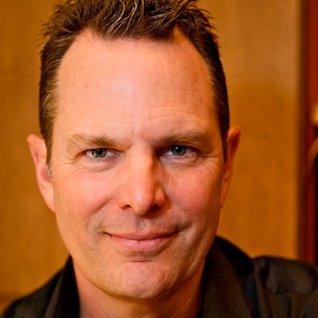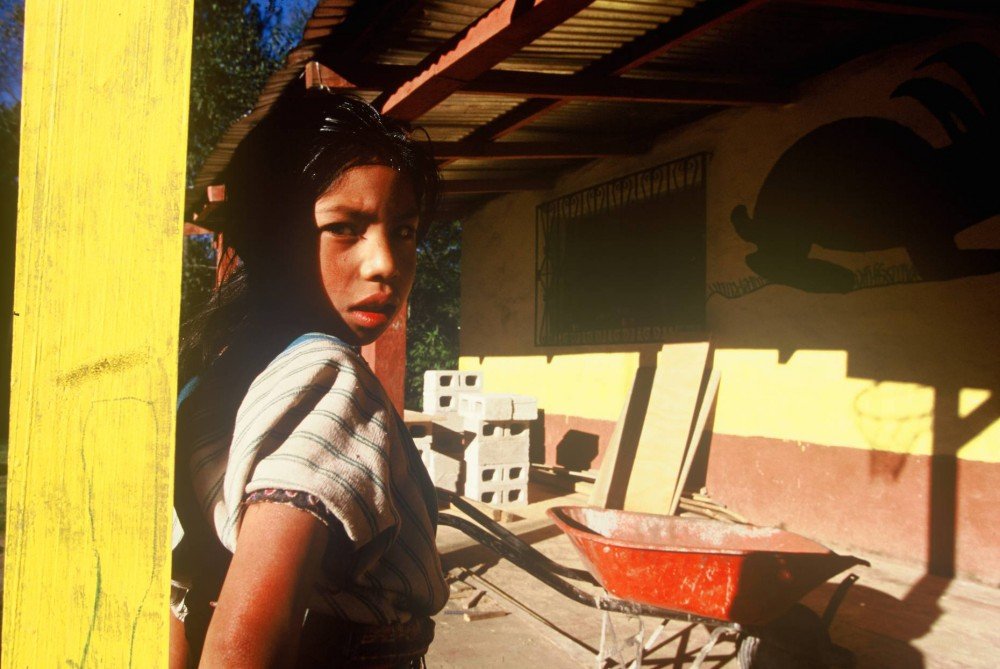
“To me photography is a blend of serendipity, of good fortune and conscious selection and structuring. I need to apply skill and I need to get lucky,” says Charlottesville photographer Will Kerner. “The skill is composing, lighting, using the camera properly. The luck is that which the subjects give you.”
A commercial and wedding photographer for 28 years, Will Kerner cross-pollinates his professional skills shooting both weddings and travel images. When shooting a wedding, says Kerner, he’s constantly seeking to capture the moment, looking at available light, creating the composition. “Then when traveling, my finger is limber from practice. I’m able to capture things because I’ve been practicing by doing the wedding photography. Conversely, when I shoot a wedding, I utilize that sensibility that I have when I’m doing my travel work—capturing the moment unobtrusively.
“In all my work, I’m looking to capture truthful moments, documentary moments, moments of real emotion. I’m trying to get a slice of life.”
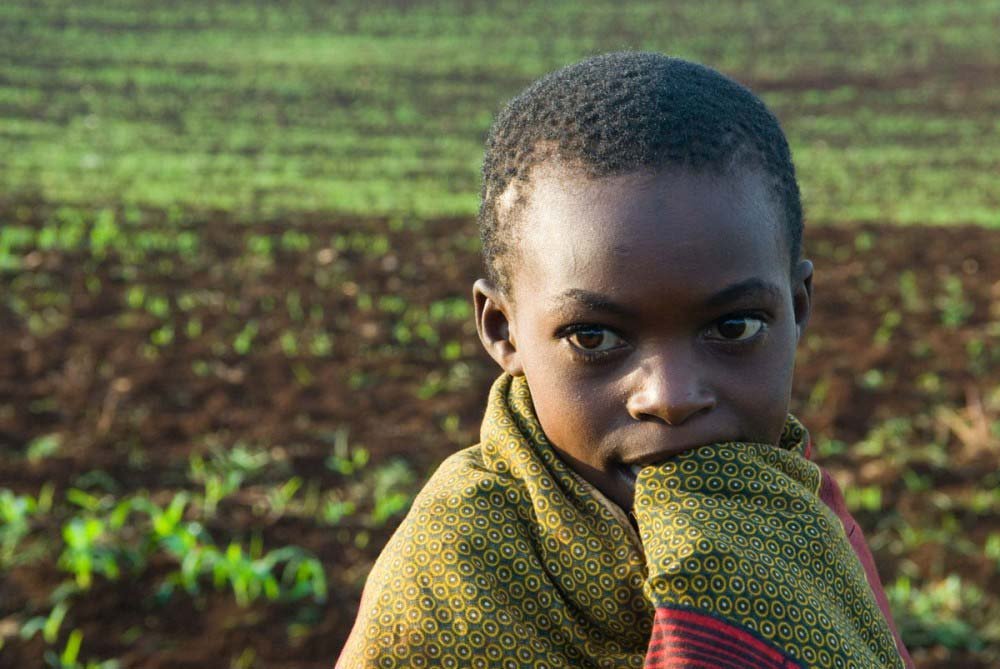
Kerner applies his principles traveling the world on his own and as a mission photographer for Operation Smile and the Building Goodness Foundation. He’s shot from India to Iceland, Tanzania to Brazil, from Tibet to Cuba. An admirer of Abstract Expressionism, he seeks diverse background surfaces, and is drawn to abstract textures and blocks of color as compositional elements, using figures to bring the image to life.
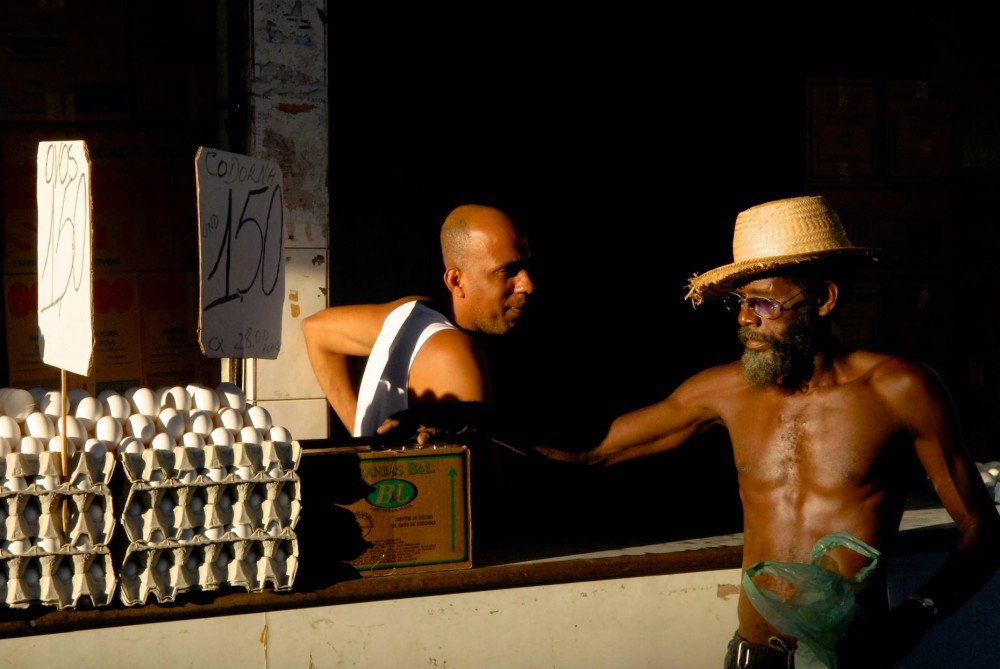
“In Egg Vendor, I saw a lot of different geometric elements, but also the negative space created by the shadow—an interesting dynamic in that one man’s face is sort of carved out of the background. Blocks of color dominate the picture which get tied together by these geometric elements. I entered their world but they’re not paying any attention to me because they’re absorbed with what they’re doing.
“I try to see the composition of the inanimate portions of the picture—everything except the people—and then wait for people to bring the picture to life, to make it work.”

In Dock, Manaus, Brazil, Kerner uses the rugged, angular backdrop as the stage for an animated zigzag of ascending climbers. “This is an everyday activity; men are walking, carrying vegetables, pushing crates. There are a lot of different formal elements here and tension is formed between them to create a balanced composition. One man is pointing up, others look in various directions. The different scale of humans makes it interesting.”
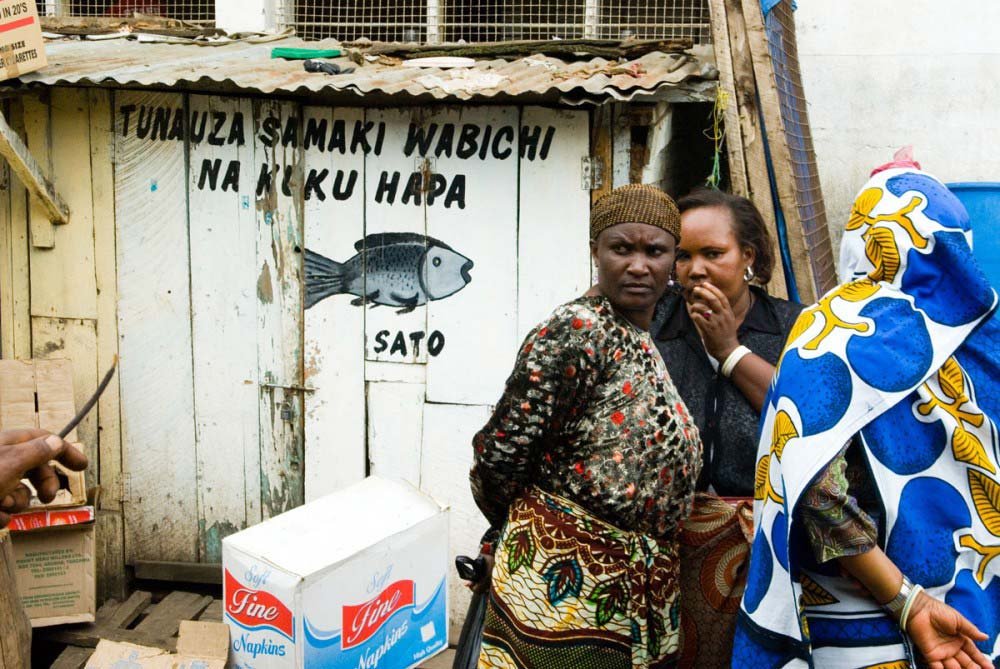
Kerner also finds vigor and drama in the interplay of signage, words and unguarded gestures. He reveals a mysterious, intimate moment. “You wonder, are the women angry? What does the man hold in his hand? The market was rich with writing every-where. I’m looking to integrate the graphics, color and geometry.”
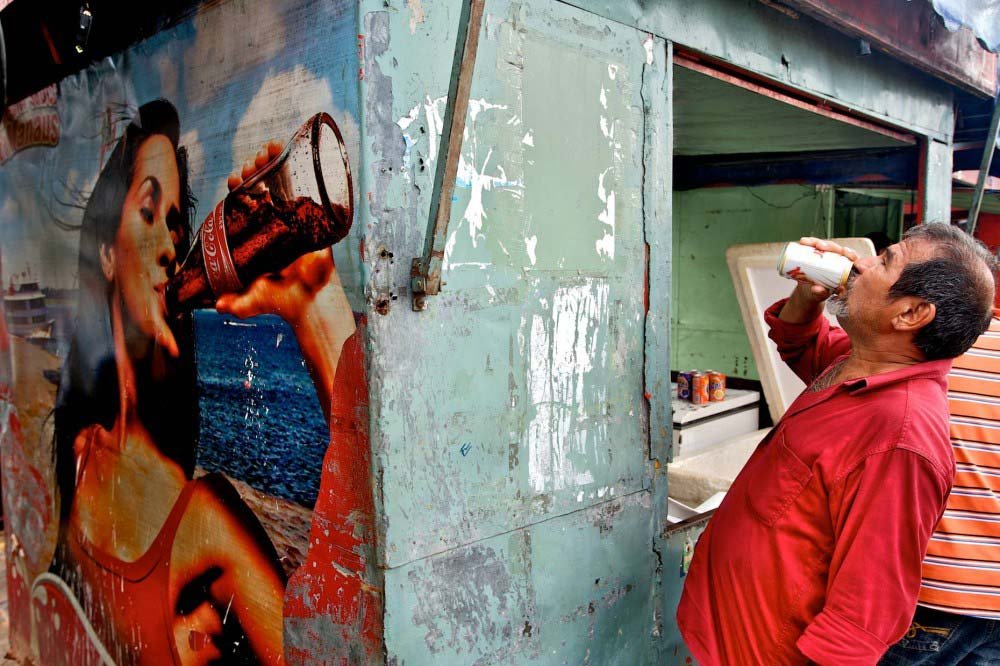
Besides the irony and humor of the juxtaposed Coke lovers here, Kerner centers on the scrapped and peeling surfaces, a la Rauschenberg. “I like to have some kind of graphic in the frame if it’s available. The center of this picture is abstract. This kind of surface figures in a lot of my work,” he says.
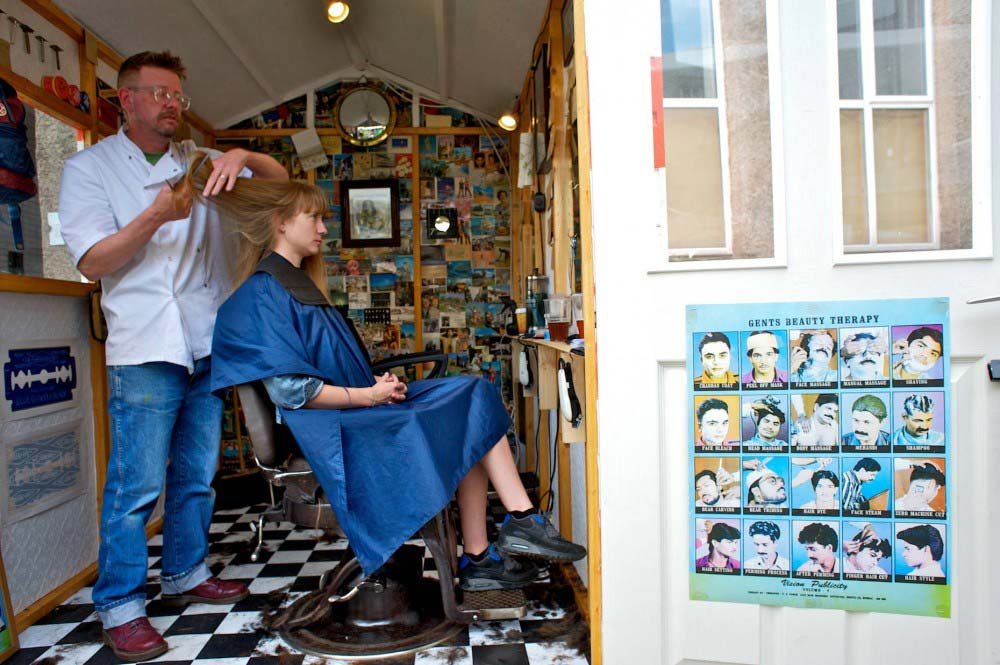
Kerner travels to Scotland each summer for the international theater festivals. Here he found intriguing human and graphic elements in this “pop up barber shop.” “There’s the weird gent’s beauty therapy sign that appears to be from India; the razor graphic leads the eye in and postcards from all over the world dot the back wall. There’s a central axis and then I tilted it a bit.”
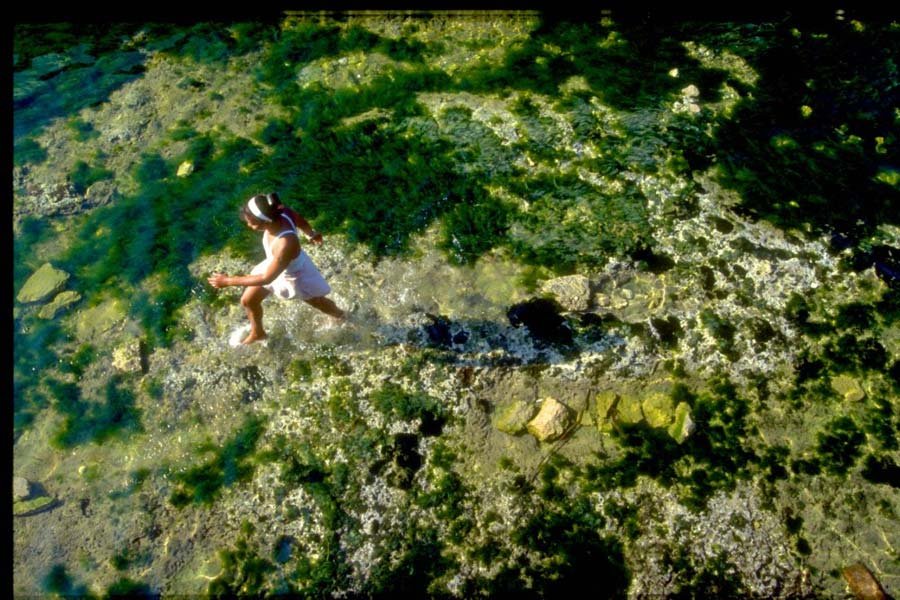
Seeking fresh angles and perspectives, Kerner stood on a wall and photographed the figure 15 feet below in Girl on the Malecon, Havana Cuba. The effect is striking, almost as if the girl skips the surface. “It takes a minute to figure out the perspective. I’m shooting almost straight down,” says Kerner. “The water is very shallow. There’s an abstract field with the girl in it. I try to balance abstraction and representation.”
While in Cuba, Kerner took a workshop with noted photographer Alex Webb whom photographer Nick Nichols describes as “the photographer all other photographers want to be.” Kerner also credits the influence of Cartier Bresson’s decisive moment, Aaron Suskin, and Indian photographer Raghubuir Singh. He studied at the University of Virginia, and earned a B.F.A. in Photography and Filmmaking from the University of San Francisco Art Institute.
Kerner says of Virginia photographer William Albert Allard: “Allard has been a great influence on me for his sense of color. His work shows a profound understanding of how colors work with each other within a frame and also the emotional impact of color. In a larger sense, he is to me a poet with a camera. He consistently produces photographs that have lyricism, a warmth and a humanity that is powerful and beautiful.”
Kerner notes that he’s always been attracted to the color red. “I intuitively feel it’s charged, and imbues a photograph with warmth.

“Here the rich red and movement of the figure from right to left carries you into the scene. There’s a rhythm to this image created by the position of the two figures. “I photographed these Masai tribesmen in Kenya as I was walking to an all-day marriage ceremony where an elderly tribesman was marrying a young woman. While we were there, people brought gifts like livestock,” says Kerner.
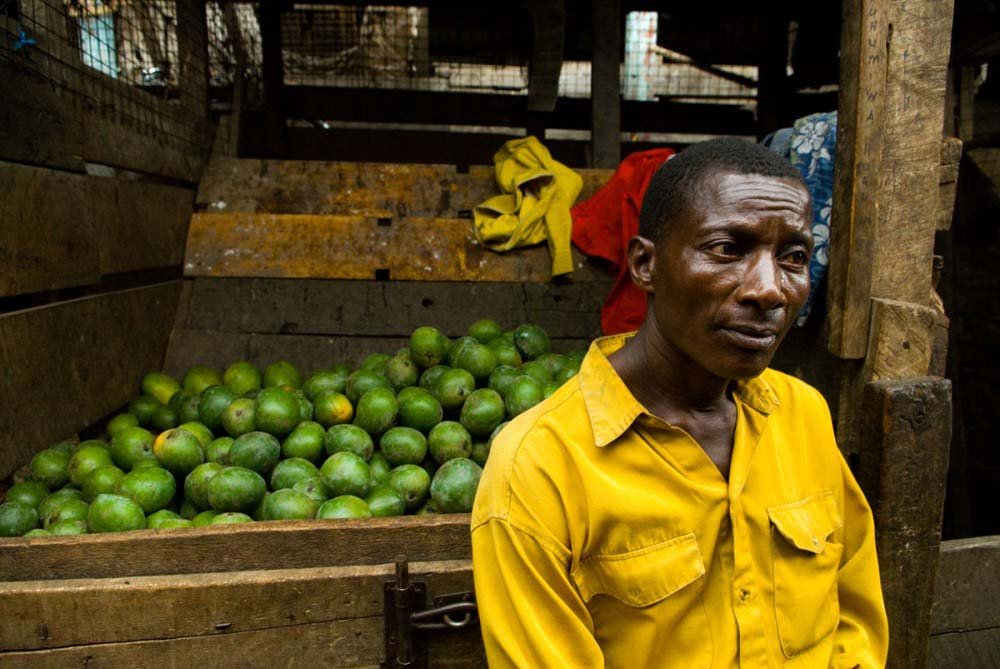
Kerner’s use of color—green, yellow and a dash of red—is particularly effective in his portrait, Fruit vendor, Arusha Market.Tanzania 2008, and opening image above, Girl, Lake Atitlan, Guatemala, 2002.
“In Girl, the shadow carves her face and creates a negative space, something I learned from Allard and Webb. the way they use negative space as a strong graphic element in a frame. Here the color harmony is happening—yellow and red throughout. Her gaze is so compelling that it takes time to notice other things: the shadow of the basketball net, the rabbit on the wall.
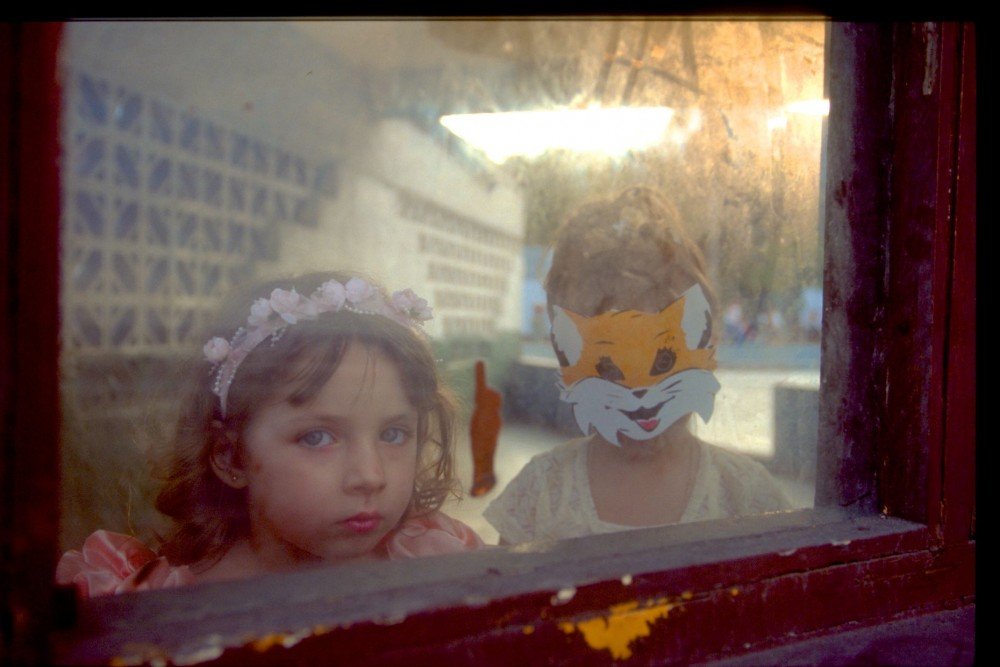
“Two Girls is just a magical picture for me. I saw these girls on the other side of the window and got this image. The fact that the glass is foggy gives it an ethereal quality. Her gaze is deep and mysterious.
“I think about camera awareness and having the subject not looking in the camera, but rules are made to be broken. You get a portrait like this. It’s a gift. I like her yellow in the tiger mask going with the yellow of the window sill; color sort of ties it together. The weird, red drip of paint is floating on the glass…is it the statue of liberty, an index finger, a hand? That chunk of color that landed between them is also serendipitous.”

In 2015, Kerner traveled to Iceland where he shot Woman walking, Bildubadalur, Iceland, 2015. “She’s walking past the detritus of life, and moving into this elysian pasture, but dark clouds are overhead. The future is promising but uncertain,” he says.
While continuing to travel and photograph, Kerner is now proceeding into new terrain as an aerial photographer. He’s also collaborating on a project with a Harrisonburg multi-media artist about the Church of the Brethern.

–Elizabeth Meade Howard, art editor
Follow us!Share this post with your friends.

